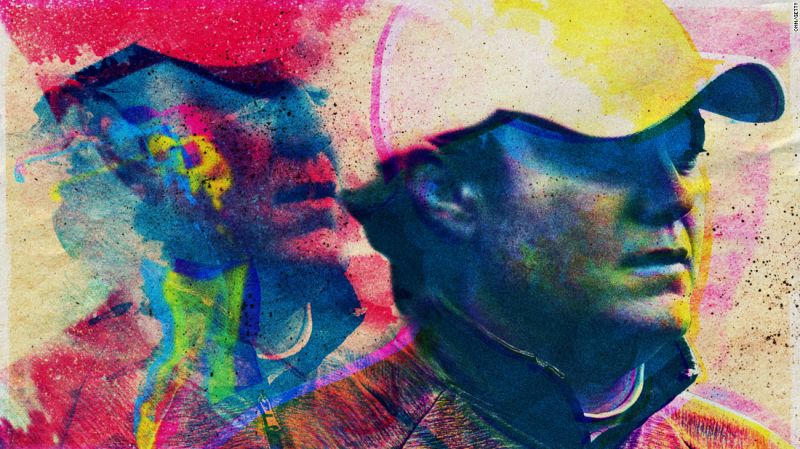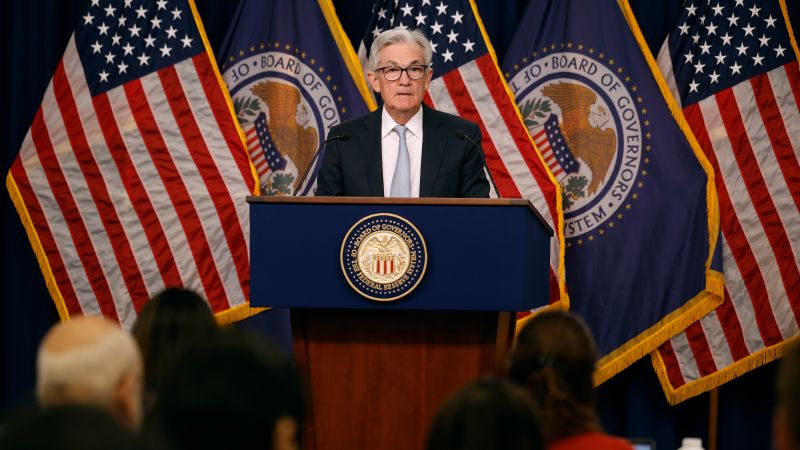Golfer Becky Brewerton’s mental health journey back to the top

CNN
—
Undeserving. Scared. Imposter.
From two-time winner on the Ladies European Tour (LET) to Wales’ first ever Solheim Cup player, there were many ways for onlookers to label Becky Brewerton in 2012, but none got close to the way she was describing herself.
Formerly a prodigious amateur, for eight years Brewerton had traveled the world competing at the summit of women’s professional golf. Then, almost overnight, her game disappeared.
Regular top-10 finishes became fleeting, then non-existent, and as Brewerton’s ranking tumbled, so too did her income. Soon without a place to live or a car, she delivered parcels and takeaways, any faint hope of a professional golf career totally abandoned.
How does an elite sportsperson who has spent countless hours honing their craft suddenly become near-paralyzed by fear and anxiety every time she competes? And more importantly, how do they overcome that fear to return to the top-level years later?
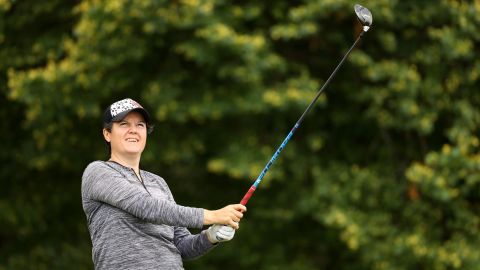
In January 2012, Brewerton had been enjoying a peaceful Sunday afternoon in Spain before deciding to venture out on a bike ride. One small stone on a corner later, the 29-year-old was flying headfirst over the handlebars, her hip slamming into the curb.
Gashing her head and ripping away half the skin on her right hand, the crash was so severe that it left a dent around her hip joint big enough to fit her entire thumb into.
Yet a mere two weeks later, despite looking more like a recently defeated boxer than a golfer, a bruised Brewerton limped onto a plane to Australia to play a flurry of events down under.
Four events, four missed cuts: the typically consistent Welsh woman quickly found herself in uncharted waters of form, and drowning in similarly unfamiliar feelings.
Standing over the ball her mind and limbs would, seemingly on a whim and with increasing regularity, completely disconnect.
Approaching the first tee, Brewerton would be often greeted with a tightening chest and heart palpitations, as the task of simply hitting the ball where she wanted became utterly daunting.
“Even though it was a physical fall that I’d had, it didn’t feel like it was the physical part of the injury that caused a problem. It felt like my mind; I was scared,” Brewerton told CNN’s Alex Thomas.
“Maybe it was partly due to the shock of something like that happening, but it was the first time I remember feeling genuinely scared on the golf course.
“I would close my eyes and it was like there was cars going at a thousand miles an hour the whole time, I just couldn’t think straight because obviously if I had been thinking straight, I would have realized that something was wrong and I would have tried to do something about it rather than just carry on.”
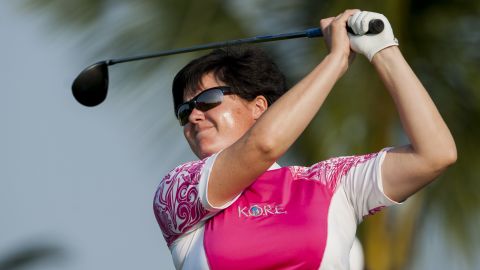
Though she believes rushing back to the game so soon after that fateful bike ride was a mistake, for Brewerton, as she reflects on her psychological struggles, she acknowledges even when she was enjoying her success not everything had felt right.
Already as she was bursting onto the scene as the European Ladies Amateur champion in 2002, finishing runner-up in two LET events at just 16-years-old, Brewerton was battling self-doubt.
Two Tour wins in 2007 and 2009 did little to extinguish such feelings. Even as she made history to reach the pinnacle of the women’s game in those years, representing Europe twice at the Solheim Cup, Brewerton’s internal struggle continued.
“Because I didn’t talk about that at the time, there was part of me that thought, ‘I’m just strange or I’m just odd,’ or people are going to think I’m weird if I say anything.
“I just thought, ‘one day this is all going to go wrong.’ My biggest fear was that not knowing if I could be the player that I wanted to be.
“I was always doubting myself and it very much was like imposter syndrome … ‘I don’t deserve to be here, I don’t belong here, I’m not as good as all the other players that are here.’
“Even in tournaments where I won, I enjoyed them obviously, but there was part of me that would always feel like, ‘Did I deserve that? How did I do that?’, because I didn’t believe that I could.
“And then all of a sudden it’s like it builds up and builds up and then one day it was like the glass got a bit too full and everything just shattered.”
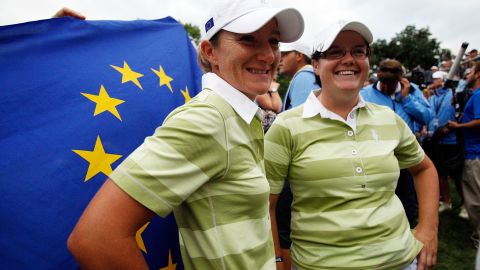
Brewerton traces the roots as far back as childhood, where an ingrained “just get on with it” attitude overwhelmed any thoughts of asking for help.
When golf became a full-time profession, her sense of self became precariously intertwined with results.
“Even some people that were my friends, and no one’s doing it deliberately, but everyone always wants to know how your golf is,” she said.
“No one ever asks how you are, so you are feeding the narrative that your whole identity is wrapped up in whether you’re playing well or not.”
This connection proved devastating when Brewerton’s form went into freefall.
Having recorded five top-10 finishes on the LET in 2011, over the subsequent nine seasons, she would achieve the same feat just three times, with none coming after 2014.
At the Ladies European Masters in 2016, all Brewerton’s anxieties cruelly manifested themselves. Having obsessed for weeks about shooting an embarrassing score, a self-fulfilling prophecy saw her told by officials that she could not return for the second round after shooting 88 on the opening day.
Yet it was this new low that marked a turning point for Brewerton.
“It was weird, once it actually happened it was almost like a relief that it was done,” Brewerton recalled.
“I didn’t have to obsess about it anymore because the worst thing had happened and lo and behold, nothing awful happened – I was still alive, still healthy.
“You build these things up like, ‘you’re not going to be able to do anything ever again’ and then as soon as it happens, you realize, ‘okay, that’s it, now’s the time to move on.’”
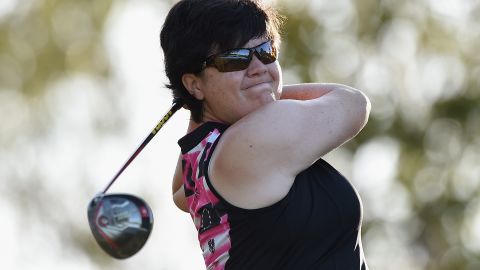
In Brewerton’s own words, she had hit rock bottom.
Playing just a handful of events over the subsequent few years, she worked for Amazon, Deliveroo, and in the pro shop of a golf club. Without a place to live, she stayed with a friend and former physical trainer for two and a half years.
Despite her struggles in the game, Brewerton never fell out of love with golf.
Working other jobs acted as a “reality check,” offering a perspective of how lucky she felt to be a professional sportsperson. While doubts remained, Brewerton was invigorated to begin again.
Paradoxically, that meant less golf.
Looking back, Brewerton believes she was often guilty of over-training, at the expense of working on the mental side of her game. Slashing her tournament appearances, she began journaling and meditating, as well as starting work – and sometimes being brutally frank – with a performance coach.
“Sometimes being deadly honest is hard because it’s upsetting, so it’s difficult to talk about,” she said. “I had to kind of get over the embarrassment, if you like, of being afraid of getting upset in front of other people.
“It takes a long time to change your thought process because if deep in the back of your mind you don’t think you’re very good or you’re giving yourself a hard time, you can’t just switch it off. If you could, everyone could do it.
“Lo and behold, my golf got so much better because I was practicing less and wasn’t giving my body so much pain and was actually healing the bit that was making the biggest difference.”
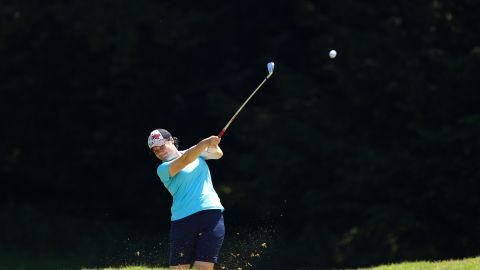
After returning to LET qualifying school to regain her Tour card, by the end of 2021, Brewerton found herself again enjoying tournament golf.
Flying back from one event in November, Brewerton got to work on a blog post titled, ‘How did I become so bad at golf?’
The response was emphatic, with the rejuvenated golfer stunned at the echoes of similar experiences among fellow golfers.
Comfortably inside the top-20 ranked players on the LET, Brewerton is enjoying her best season in a decade, with three top-10 finishes highlighting a flurry of top-25 outings.
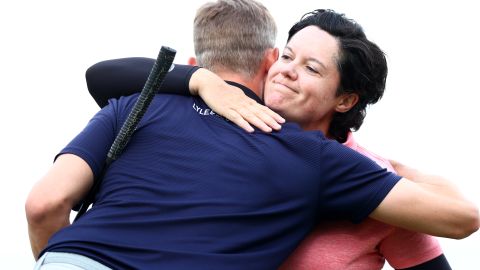
While she dreams of a return to silverware, the 39-year-old is targeting a success beyond wins.
“Deep down, I would love that to happen. But the flip side of it is, if I start obsessing about that then I know that’s the route that took me to those dark places in the first place,” she said.
“It’s weird, sport. You live for those moments where you’re in those pressurized situations, and yet when you get there, sometimes you interpret that as a nervous feeling that you don’t want or you get all of the big pumps of adrenaline and you start to doubt yourself, even though the entire reason that you put in all the work you do in the first place is to be in that position.
“So I’ve absolutely, hand on heart, promised myself that I’m not going to interpret that feeling as a bad thing, because this is this what we live for.”


